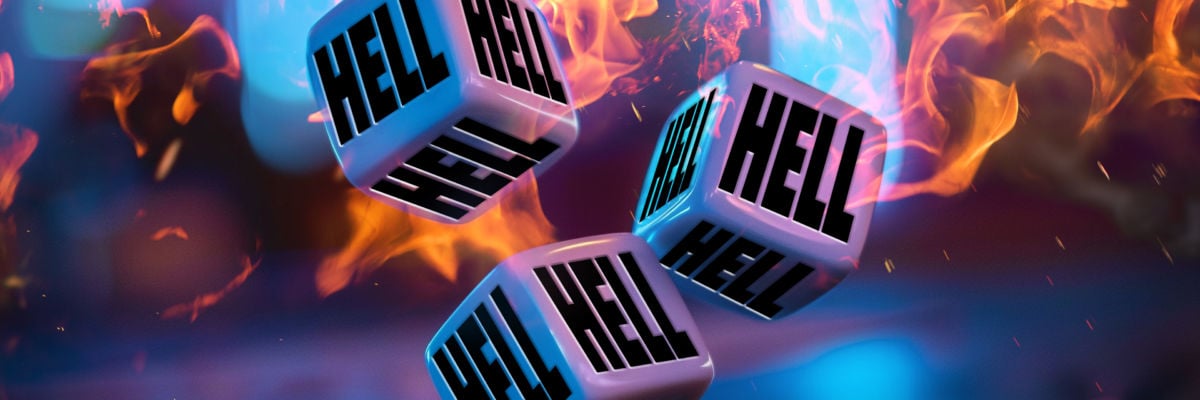
Joe Heschmeyer tackles the complex theological question of predestination and free will. He explains that predestination exists, but not in the Calvinistic sense that negates free will. He uses the example of Pharaoh hardening his heart in the Bible to illustrate how both God’s will and human choice can coexist.
Transcript:
I know that there’s some denominations that believe in predestination and my original
instinctive reaction is like, “What?” But then I was like, “Well,
kind of hard to argue against that when you think about, say, Judas, who was like, he’s supposed to betray Jesus. Like, as soon as he got the Eucharist, it was like right after that, then Satan entered him. And then I don’t remember the exact
verse off the top of my head or nor the exact wording, but as I recall, oh, when God was assuring Moses that he’d be with him, he’d also assured him that I’d make ram if he’s obstinate or stone hearted. I was like, “Well…” Is there predestination? I don’t know how to respond.
Is that what you want to know?
I don’t know how to… I know that there isn’t. It’s just I don’t know how to kind of counter somebody bringing that up, say, some non-Catholic throws that at me.
I was like, “All right, Joe?” That’s a very good question. The first thing I’d say is there is predestination, just not in the Calvinistic sense of it. So God is outside of time. And so anything that happens, God either desired that it happened or permitted it to happen for some reason. And so in that sense, we have to take… I mean, Saint Paul is very clear, those whom he foreknew, he also predestined. He even uses the language of predestination to describe this. The problem is that when modern Christians hear the term predestination, they often have a very specific, very Protestant, very Calvinistic kind of understanding of what that means, that if there is predestination, then there is no free will. Then our choices are only illusory or we’re not making free choices. And that doesn’t follow logically, and it’s not true. So I’m going to take the example of Pharaoh as a clear way you can see this. In Exodus chapter 9 and 10, we hear both that in verse 34, Pharaoh seized the rain and the hail and thunder it ceases. He send yet again and hardened his heart.
And then in verse 35, it says, “So the heart of Pharaoh was hardened.” And then in Exodus 10, 1, God says, “Go into Moses for I have hardened his heart.” So in the span of a few verses, we hear both that Pharaoh hardens his own heart and that God hardens Pharaoh’s heart. So how can we harmonize that without just ignoring one side of the ledger or the other? The best explanation I’ve heard. So it was super hot here in the Midwest until we got an amazing day of relief. It’s like 18 degrees cooler today than it was yesterday. And it was blazingly hot. And when you have mud out in the sun like that, it hardens. When you have butter out in the sun like that, it melts. So we can say the sun hardened the soil and it melted the butter, but that doesn’t mean that the sun hates the soil and loves the butter or anything like that. What we’re really doing is it’s two ways of describing the reaction, soil versus butter, has to the sun. And so likewise, we react to God in different ways, either by opening our hearts or by hardening them. And so in that way, just as we can talk about the soil being hardened or melted, we can talk about our hearts being hardened or melted, but we have an actual role to play and whether we allow our hearts to be open to the Lord or whether we harden them. And so if we harden them, we can both say God hardened our hearts. And since it was in response to God that this happened, just like it’s in response to the sun, the clay hardens and that we harden our own hearts. So both can be true. So that’s why I would suggest there. And the fact that God incorporates even our sin into his plan of salvation, as we see most famously in the case of Judas, doesn’t make it not sin. Like the reason Judas is punished, the reason that Jesus can say would be better for him not to have been born is because it actually does matter what we freely choose to do. If we had no agency over it, we wouldn’t be held accountable for it. If you are, let’s say, on a train as a passenger and the train is in some sort of horrible collision and somebody dies, you’re a passenger on the train, you had no agency, you had nothing to do with that. You were there, but you didn’t cause it to happen. You were simply along for the ride. And so if predestination was like that, we could never be held accountable. And the early Christians recognized this, by the way, St. Justin Martyr responded to the popular pagan view of the time, which was fate, and said, that is not what we believe as Christians. We believe in free will. So in the 100s, you have very clearly the fact that the Christian conception of predestination very explicitly includes the freedom of our will to cooperate with or resist God.
Hey, thanks for watching. If you like this Catholic answer, be sure to like, subscribe, and check out our live streams Monday through Friday, 3 to 5 p.m. Pacific, or find the episode after on YouTube, your favorite podcast platform, or our Catholic Answers app.



